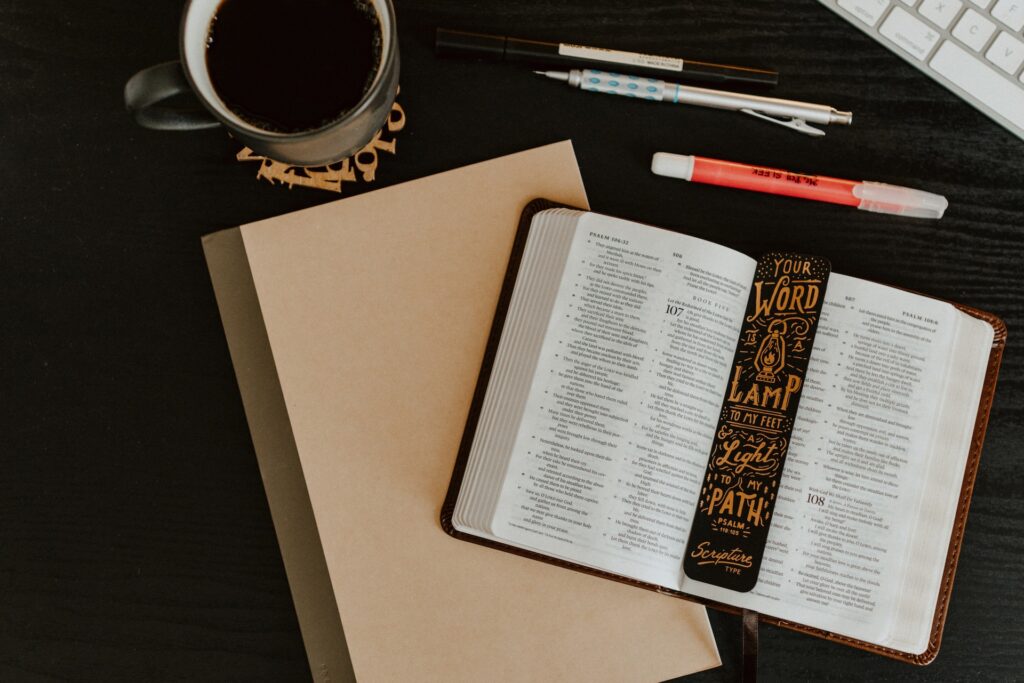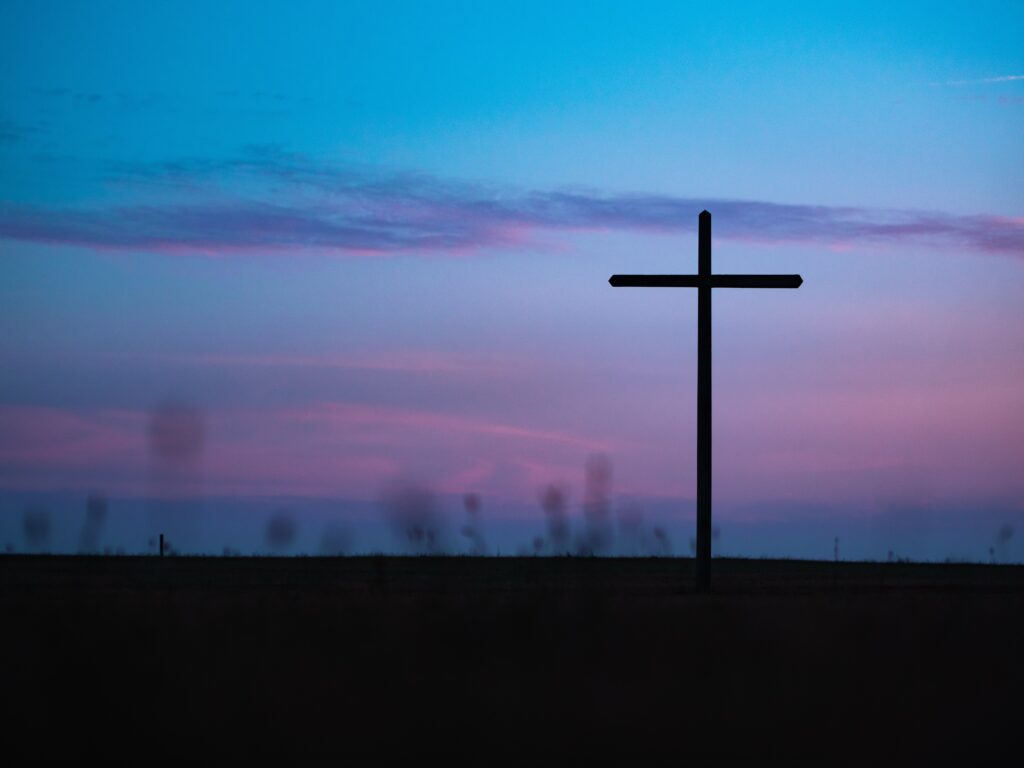
By AC
This objection often raised by some Muslims is quite puzzling, as it doesn’t seem to make sense. It is typically directed at Christians, possibly because there is discomfort regarding the age of Aisha when she married Muhammad. According to various Hadiths, Aisha was six or seven years old at the time of marriage, and all agree that the marriage was consummated when she was nine.
Some Muslims might not be aware of the origins of this claim and often repeat it without verifying the facts. This objection actually originates from a Jewish rabbi named Rashi and his commentary on Genesis 25:20. However, Muslims often misquote Rashi, claiming he stated that Rebekah was three years old when Isaac married her. In reality, Rashi never mentions Rebekah’s age at the time of her marriage. This claim is based on assumptions, interpretations of Rashi’s commentary, the book of Genesis, and speculative calculations. Rashi does provide context on when Rebekah was born at the beginning of his commentary, which we will now examine. Please watch this video to see how to handle this objection from a different perspective, by Islam Critiqued or by Sentinel Apologetics (video) .
Rashi’s Commentary in Context on Rebekah’s
בן ארבעים שנה FORTY YEARS OLD — For when Abraham came from Mount Moriah he received the news that Rebekah was born (22:20). Isaac was then thirty-seven years old, because at that time Sarah died and from the birth of Isaac until the Binding — when Sarah died — there were 37 years since she was 90 years old when Isaac was born and 127 when she died, as it is said, (23:1) “And the life of Sarah was [one hundred and twenty-seven years]” — thus Isaac was then 37 years old. At that period Rebekah’s was born and he waited until she was fit for marriage — 3 years — and then married her (Seder Olam). – Rabbi Rashi commentary on Genesis 25:20 (bold emphasis are AC’s)
He never explicitly states that she was 3 years old. Instead, he mentions waiting three years until she was fit for marriage. Additionally, Genesis 22:20-24 does not specify that she was born at that exact moment. If it did, it would imply that Rebekah’s father and uncles were all born simultaneously, as the passage notes her father’s birth alongside hers.
Rabbis That Say Rebekah Was of Age
Chizkuni, also known as Rabbi Hezekiah ben Manoah, was a French rabbi and biblical commentator who lived during the 13th century. His most famous work is a commentary on the Torah, which is also commonly referred to as “Chizkuni.”
Chizkuni, Genesis 25:20:1
ויהי יצחק בן ארבעים שנה, Rashi’s comment on this apparently historically irrelevant detail, is that the Torah informed us that Yitzchok, after marrying Rivkah, waited for three years until she was old enough to engage in intercourse and become pregnant. (14 years old) [In his commentary on Genesis 24,16, item 91 Rabbi Kasher in his Torah Shleymah, deals at length with the conflicting opinions about Rivkah’s age at marriage. Sifri on Deuteronomy 34,7 claims that Rivkah lived to the age of 133 years, same age as that of Kehat, son of Levi. Our author calculates that if Rivkah had only been 3 years at the time when she was married that calculation would be wrong by eleven years. He proceeds to give details tracing the various ages of our patriarchs and matriarchs down to the birth of Kehat. He also understands the Midrash according to which Avraham heard about the fact that Betuel had fathered Rivkah as not meaning that this had occurred at the same time as the akeydah, but that Avraham had belatedly heard about this. As proof that Rivkah could not have been only 3 years old when Eliezrer met her, he cites the fact that her brother and mother refer to her as a נערה, a term never applied to someone younger than 12 and a half years of age. The well known traditional historic text known as seder olam in its first chapter, also writes that when Avraham returned from the Akeydah he was told that Rivkah had been born. The meaning of that Midrash was that she had been born some time ago. Another proof that she was of age is that we have an iron clad rule that parents must not marry off a girl who has already reached puberty unless she has been asked and given her consent.] The fact that in our chapter Rivkah’s family proceeds to ask for her consent proves that without it the parents could not have married her off. – Rabbi Hezekiah ben Manoah commentary on Genesis 25:20 (bold emphasis are AC’s)
Daat Zkenim (or Da’at Zekenim) is a medieval Torah commentary attributed to a group of scholars known as the Ba’alei HaTosafot (“Masters of the Additions”). These scholars were primarily French and German rabbis who lived during the 12th and 13th centuries. They are known for their commentaries on the Talmud and other Jewish texts, often expanding on or offering alternative interpretations to those of Rashi.
Daat Zkenim on Genesis 25:20:1
ויהי יצחק בן ארבעים שנה, Yitzchok was forty years old, etc.” According to Rashi, the forty year old Yitzchok married a three year old Rivkah. This is difficult as we have learned from the Sifri that there were three people who reached the same age, i.e. Kehat, Ben Azzai and Rivkah, and the Torah stated that Kehat died at the age of one hundred and thirty three. (Exodus 6,18.) If this were correct she must have been eleven years older than three when she married Yitzchok. [There is no Sifri on the Book of Genesis, but the Midrash hagadol, which originated in Yemen, also claims that Rivkah was 14 years old when she married Yitzchok. Ed.] Rashi’s calculation goes as follows: Rivkah was married at 3 years, and was 23 years old when she gave birth to Esau and Yaakov. Yaakov was 63 years old when he fled to Padan Aram as Rashi explains at the end of this portion. He then spent 14 years in the academy headed by Ever, great grandson of Noach. After that he worked 20 years for his uncle Lavan. He spent 2 years on his return journey home during which time he was informed by Rivkah’s nursemaid that his mother had died, as Rashi explains at the end of parshat Vayishlach, in connection with the burial of that nursemaid called Devorah, and the naming of an oak tree after her. According to this calculation, Rivkah could not have lived to an age older than 123 years. This is also the opinion of Rabbi Yehudah according to whom Rivkah must have been 14 years old when she got married. If you accept that view, Rivkah died at the age of 133. According to this calculation, what we read in seder olam, chapter 1, that Avraham was informed about the birth of Rivkah while on the way home from the binding of Yitzchok, she must have been 11 years old already at that time. This is what bothered Rabbi Moshe Shlomoh ben Avraham known by the acrostic אנסימא”ן, when discussing that a virgin is given 12 month between betrothal and consummation of the marriage (Talmud tractate Ketuvot, folio 57) The Talmud there derives this from the words in our portion, when Rivkah’s family demanded 12 months delay from Eliezer before Rivkah going with him. If Rivkah had been 14 years old already, she would have been considered an adult, and her father would not have had the right to tell her what to do (unless she still continued to live in his house) The Talmud there gives a girl who is over twelve and a half years old at betrothal only thirty days before becoming wed to her fiance, just as the length of time required before a widow can remarry. Our author leaves the question open, not having heard how to reconcile these data to the satisfaction of all scholars. – Rabbi Daat Zkenim commentary on Genesis 25:20
- The Hebrew word נערה (na’arah) means “young girl” or “maiden.” It refers to a young, unmarried woman, typically in her teenage years. The term is used in various contexts in the Hebrew Bible and in modern Hebrew to describe a young female, often emphasizing her youthfulness and unmarried status.
- Rebekah’s consent was asked in Genesis 24:57-58
- Rabbis Hezekiah & Daat Zkenim uses Rashi’s writing on this topic as proof that Rebekah couldn’t have been 3, but was of age to marry.
- Some Rabbis do say she was 3 years old when Issac married her, but we will show those commentaries at the bottom of this article, showing why even these Rabbis are incorrect as the muslims.
- Others interpret Rashis writing to say that Rashi did say she was 3.
It seems even the Rabbis are confused regarding Rebekah’s age, but there is undeniable strong evidence supporting that she wasn’t three. Other points have already been made in the linked video at the top of the article.
Biblical Context
As explained in this video, some Muslims interpret the phrase “after these things” to mean “immediately after these things,” which leads to the speculative idea that Rebekah was somehow 3 years old. However, the correct interpretation of “after these things” implies an unspecified period of time. Let’s first consider the Muslim interpretation to assess its accuracy.
According to their view, Isaac was 37 years old when Rebekah was born, as suggested in Genesis 22:20 where the phrase “after these things” appears. The issue with this interpretation is that Isaac was just born in the previous chapter. Additionally, it assumes that the incident on Mount Moriah in Genesis 22 and Rebekah’s birth happened simultaneously.
- “Now Yahweh visited Sarah as He had said, and Yahweh did for Sarah as He had promised. 2 So Sarah conceived and bore a son to Abraham in his old age, at the appointed time of which God had spoken to him. 3 And Abraham called the name of his son who was born to him, whom Sarah bore to him, Isaac.” – Genesis 21:1-3
In Chapter 22:1, we encounter the phrase “after these things,” even though Isaac was just born in the previous chapter. By the time he was weaned (Genesis 21:8), he might have been around three years old. How, then, is he considered 37? If we consider a Muslim interpretation, Isaac must still have been a child in the context of Chapter 22. This would imply that when Isaac and Rebekah married, Isaac was six years old, and Rebekah was three. Abraham was commanded to sacrifice his son, but God intervened to stop him, as this was a test of his faith (Genesis 22:12).
Next is the mentioning of Rebekah’s birth.
- 20 Now it happened after these things, that it was told to Abraham, saying, “Behold, Milcah also has borne children to your brother Nahor: 21 Uz his firstborn and Buz his brother and Kemuel the father of Aram 22 and Chesed and Hazo and Pildash and Jidlaph and Bethuel.” 23 And Bethuel was the father of Rebekah. These eight Milcah bore to Nahor, Abraham’s brother. 24 And his concubine, whose name was Reumah, also bore Tebah and Gaham and Tahash and Maacah.
Children of Nahor and Milcah
- Uz – Firstborn
- Buz – His brother
- Kemuel – The father of Aram
- Chesed
- Hazo
- Pildash
- Jidlaph
- Bethuel – Father of Rebekah
Children of Nahor and Reumah (his concubine)
- Tebah
- Gaham
- Tahash
- Maacah
Notice that Rebekah is the Granddaughter Nahor and the daughter Bethuel. If she was born at this time “immediately after these things,” wouldn’t that imply all her uncles, half-uncles, and her father were born at the same time mentioned in these verses? That’s clearly not the case, as it would be unreasonable to suggest so. Why, then, do some Muslims make this claim? things.” Wouldn’t that include all of her Uncles, half Uncles and her own Father? Were they all born at the same time in these verses? Certainly not, it would be foolish to say so. Why do Muslims say it then?
Grammatical Irony for Muslims
In his video, Islamic Critique points out that “naă’rā” refers to Rebekah as a damsel, which means a young woman. A term never applied to someone younger than 12 and a half years of age. Another term used to describe Rebekah as “almah,” which simply means “young woman” and “Virgin.” The text literally calls Rebekah a young woman. What’s ironic is that Muslims often cite the Jewish source Rashi, even though Jews argue against Christians regarding the interpretation of Isaiah 7:14, which says, “Behold, the virgin will be with child and bear a son.” Jews claim that the word doesn’t mean virgin but young woman, asserting that the word often refered to be virgin is “bethulah” (with qualification). However, this claim by Rabbinic Jews has been debunked. Both “almah” and “bethulah” are used to describe Rebekah in Genesis 24:16, 43. This demonstrates that “almah” can mean virgin, thus disproving the Rabbinic Jewish claim. This suggests either a contradiction or that “almah” can mean virgin, supporting Matthew 1:23. Why is this relevant if you haven’t noticed already?
Read more in this article on Isaiah 7:14
Let’s look at all the points just made:
- On one hand, some Muslims will distort Jewish sources or use them to oppose Christians. Meanwhile, the same Rabbinic Jews will argue against Christians by demonstrating that the word almah means “young woman,” as used to describe Rebekah. This shows that the claim about Rebekah is inaccurate when they say she is 3.
- This also debunks the Jewish claims that “almah” cannot mean “virgin” and should instead be “bethulah.” In Genesis 24:16 and 24:43, both words are used to describe Rebekah, undermining those claims. Another example where “almah” can mean “virgin” is in Song of Solomon 6:8-9, where concubines and virgins (almah) are clearly distinct.
- Both arguments ultimately support the Christian perspective over that of the Jews and Muslims. This creates a grammatical irony.
More Biblical Contextual Points
- Energetic and Industrious: Rebekah is portrayed as energetic and industrious, quickly drawing water for the servant and his camels (Genesis 24:18-20). Her ability to carry out this physically demanding task suggests youthfulness and vitality. This something a 3 year old can not physically do for camels (Genesis 24:10-20).
- Hospitality and Kindness: Her willingness to offer water to the servant to 10 of his camels (Genesis 24:18-20) reflects the generosity and kindness often associated with a young person eager to help others.
- Family Context: Rebekah is introduced as the daughter of Bethuel, with her family lineage detailed in the narrative (Genesis 24:15, 24), which situates her within her familial and social context as a young woman ready for marriage.
- Genesis 24:51, 67 use the word Issah – אִשָּׁה֙ to describe Rebekah, and this word is only used for adult females and is never used for a child.
Coherent Adult Conversations
Conversation with Abraham’s Servant:
- Genesis 24:24-25 (LSB): After the servant asks whose daughter she is, Rebekah responds clearly and offers hospitality:
“She said to him, ‘I am the daughter of Bethuel, the son of Milcah, whom she bore to Nahor.’ She also said to him, ‘We have plenty of both straw and feed, and room to lodge in.’”
Rebekah’s Decision to Go with the Servant:
- Genesis 24:57-58 (LSB): When asked if she will go with the servant to marry Isaac, Rebekah answers decisively:
“And they said, ‘We will call the young woman and ask her personally.’ Then they called Rebekah and said to her, ‘Will you go with this man?’ And she said, ‘I will go.’”
Interaction with Her Family:
- Genesis 24:59-60 (LSB): Her family blesses her, indicating their recognition of her ability to make her own decisions:
“Thus they sent away their sister Rebekah and her nurse with Abraham’s servant and his men. And they blessed Rebekah and said to her, ‘May you, our sister, Become thousands of ten thousands, And may your seed possess the gate of those who hate him.’”
These are just other basic details; for more information watch these 3 videos related to the topic so that you will be able to articulate the argument as best you can (1, 2, 3)
Major Points Summarized
- Nowhere does it give Rebekah’s age, it comes from assuming.
- The phrase “after these things” is the only connection between the events in Chapters 21 and 22, indicating an unspecified length of time. If one argues that Rebekah was 3 years old when her birth was announced, they must also logically conclude that Isaac was 3 years old at that same announcement. However, Genesis 21:1-3 describes Isaac’s birth, and the phrase “after these things” appears in Genesis 22:1. According to this reasoning, Isaac would have been 3 years old when Abraham received the news about his brother Nahor having children and grandchildren, which aligns with a logic originally developed by some early Jews and adopted by Muslims. However, since Isaac is 37 years old in Chapter 22, it demonstrates that “after these things” signifies an indeterminate amount of time.
- By the time we get to Genesis 22:20-24, verse 20 starts with “after these things” and then mentions Rebekah’s birth in verse 23. This passage clearly indicates that Rebekah had already been born. The interpretation by some Muslims and others who misinterpret the Bible. Nahor had eight children and twelve grandchildren, with three of them specifically mentioned, including Rebekah. To suggest that Rebekah was born at the exact moment Abraham received news of Nahor’s children and grandchildren is illogical. If we follow this incorrect logic, it implies that all of Nahor’s children and grandchildren were born simultaneously, which is clearly not possible. Assuming Rebekah was born at the time Abraham received this news would also mean her father and uncles were just born at that same moment, because it mentions their birth as well, which is absurd. This interpretation simply doesn’t hold up against the textual evidence.
20 And it came to pass after these things, that it was told Abraham, saying, Behold, Milcah, she hath also born children unto thy brother Nahor;
21 Huz his firstborn, and Buz his brother, and Kemuel the father of Aram,
22 And Chesed, and Hazo, and Pildash, and Jidlaph, and Bethuel.
- The text in Genesis 24 clearly supports that Rebekah is not a little girl, as Sam Shamoun has already demonstrated. The words used in the text specifically describe Rebekah as a “young woman” or “damsel,” not a child. The Hebrew term “נַעֲרָה” (na’arah) is employed, which can mean “young woman” or “maiden.” While “na’arah” can sometimes refer to a girl, in the context of Rebekah, it unmistakably denotes a young woman. The designation of “damsel” further reinforces that Rebekah is of marriageable age, emphasizing her maturity.
- The second term, “עַלְמָה” (almah), is used, which means “young woman” and specifically implies a maiden of marriageable age. Notably, “almah” is never used to refer to a little girl in the Bible.
Side Note: Some rabbis argue against Christians by claiming that “almah” cannot mean “virgin” and that only “betulah” signifies a virgin. However, both “betulah” (Genesis 24:16) and “almah” (Genesis 24:43) are used in reference to Rebekah, which challenges the rabbis’ argument and demonstrates that “almah” can indeed mean “virgin.” By their logic, this creates a contradiction, suggesting that the Christian interpretation is correct. I brought this up to show that the rabbis are not the ultimate authority on Hebrew Bible interpretation, as they often have differing and sometimes contradictory interpretations. It is also to show that even they will argue that almah can mean young woman.
Rabbis That Say Rebekah Was 3
The idea of Rebekah being three years old is implausible, and it’s evident that even the rabbis themselves have differing opinions on this matter, but here are the Rabbis who support the idea that Rebekah was three so you will not be thrown off if it is presented to you. Remember that Rabbinic sources do not influence Christian interpretation. Their sources sometimes align with Christians and sometimes they don’t. In Rabbinic Sources the Rabbis differ amongst each other as you can see based on the information provided in this article. The focus should be on what can be substantiated with solid evidence (Hebrews 11:3).
Rabbi That Says Rashi Is Wrong In His Interpretation
Rashi’s comment on this apparently historically irrelevant detail, is that the Torah informed us that Yitzchok, after marrying Rivkah, waited for three years until she was old enough to engage in intercourse and become pregnant. (14 years old) [In his commentary on Genesis 24,16, item 91 Rabbi Kasher in his Torah Shleymah, deals at length with the conflicting opinions about Rivkah’s age at marriage. Sifri on Deuteronomy 34,7 claims that Rivkah lived to the age of 133 years, same age as that of Kehat, son of Levi. Our author calculates that if Rivkah had only been 3 years at the time when she was married that calculation would be wrong by eleven years. He proceeds to give details tracing the various ages of our patriarchs and matriarchs down to the birth of Kehat. He also understands the Midrash according to which Avraham heard about the fact that Betuel had fathered Rivkah as not meaning that this had occurred at the same time as the akeydah, but that Avraham had belatedly heard about this. As proof that Rivkah could not have been only 3 years old when Eliezrer met her, he cites the fact that her brother and mother refer to her as a נערה (naarah https://biblehub.com/hebrew/5291.htm), a term never applied to someone younger than 12 and a half years of age. The well known traditional historic text known as seder olam in its first chapter, also writes that when Avraham returned from the Akeydah he was told that Rivkah had been born. The meaning of that Midrash was that she had been born some time ago. Another proof that she was of age is that we have an iron clad rule that parents must not marry off a girl who has already reached puberty unless she has been asked and given her consent.] The fact that in our chapter Rivkah’s family proceeds to ask for her consent proves that without it the parents could not have married her off. (Chizkuni, Genesis 25:20, translated and annotated by Eliyahu Munk Link; emphasis mine) Additional Article
קחתו את רבקה, “when he married Rivkah, etc.” Rashi claims that Rivkah was only three years old when she became married to Yitzchok. This is very difficult to accept in view of the fact that the Torah had referred to her repeatedly as נערה, a term used for girls at least 12 years old. This in turn would raise the question why Yitzchok did not divorce Rivkah after she had not born a child after 10 years of marriage, and according to the Talmud Ketuvot 64, in that event a husband should divorce his wife. If so why did Yitzchok even wait for 20 years before he prayed for Rivkah to have children? The Talmud answers the question by explaining that Yitzchok’s situation was unusual in that Rivkah had been biologically unable to have children during the first ten years of her marriage as she had been too young to bear a healthy child. In the Sifri, a sage is quoted giving Rivkah’s age at her marriage as 14 years. Such divergences of opinion between different sages quoted in a Midrash are not unusual, although in this instance that sage has to confront the question why it took Yitzchok 20 years before he prayed for children. – Tur HaArokh, Genesis 25:20:1
Rabbi That Interpret Rebekah To Be 3
ויהי יצחק בן ארבעים שנה, When Isaac was forty years old, etc. The reason the Torah reports the age at which Isaac married, something that we were not told concerning Abraham, is in order to to explain why Isaac married so late. The words בקחתו את רבקה, explain that he had to wait that long in order to marry this particular girl. The words: “לו לאשה” “for him as a wife,” spell out that only this woman could have fulfilled the role of becoming Isaac’s wife. Prior to Rebeccah’s birth no בת זוג, suitable potential wife, had existed for Isaac. We have explained in the last פרשה that Rebeccah was very young, having only been born when Isaac lay bound on the altar (at the age of 37) and thus became capable of fathering issue. Under the circumstances no criticism can be levelled at Isaac for not getting married earlier. Rebeccah was only three years old when Isaac married her. – HaChaim on Genesis 25:20:1
“Isaac was forty years old when he took Rebecca” [25:20]. Isaac was forty years old when he took Rebecca to wife. Rashi asks a question here. How is it Isaac should go for so long without a wife? Our sages said that one should marry at eighteen. Rashi asks another question. What does the verse teach us that Isaac was forty years old? The explanation is that he could not take a wife before the age of forty. He had to wait until Rebecca was three years old, when she was appropriate for him to sleep with her. Isaac could not take a kosher wife except Rebecca, who was his wife from God. Therefore, the verse tells us that he was forty years old. That is, he waited until Rebecca was ready for him to sleep with her. From here we learn that anyone who lies with his sister or someone who is not permitted to him and she is three years old, he has committed a sin, since when she is three years old, she is a proper woman. – Tze’enah Ure’enah, Toldot 6
RELATED ARTICLES
Islam – The Religion of Pedophilia
Muhammad’s Marriage to a Prepubescent Minor
Revisiting the Age of Aisha Pt. 1
Revisiting the Age of Aisha Pt. 2






I gotta bookmark this site it seems very useful extremely helpful
There may be noticeably a bundle to learn about this. I assume you made sure nice points in features also.
I like what you guys are up too. Such smart work and reporting! Keep up the superb works guys I’ve incorporated you guys to my blogroll. I think it will improve the value of my website 🙂
I have been exploring for a bit for any high-quality articles or blog posts on this kind of area . Exploring in Yahoo I ultimately stumbled upon this web site. Reading this info So i am glad to show that I have an incredibly just right uncanny feeling I found out just what I needed. I most no doubt will make sure to don¦t omit this web site and give it a glance regularly.
I am glad to be one of the visitants on this great web site (:, appreciate it for posting.
I’m really impressed with your writing skills and also with the layout on your blog. Is this a paid theme or did you modify it yourself? Either way keep up the nice quality writing, it is rare to see a nice blog like this one today..
Great line up. We will be linking to this great article on our site. Keep up the good writing.
Wow, incredible weblog layout! How lengthy have you ever been blogging for? you make running a blog glance easy. The whole glance of your web site is great, let alone the content material!
I wanted to thank you for this great read!! I definitely enjoying every little bit of it I have you bookmarked to check out new stuff you post…
I just couldn’t depart your web site prior to suggesting that I really enjoyed the standard info a person provide for your visitors? Is gonna be back often to check up on new posts
I must voice my respect for your generosity in support of individuals who have the need for help on the concept. Your special commitment to passing the solution all through had become exceptionally useful and have continually empowered guys and women just like me to get to their dreams. Your warm and helpful report entails this much to me and still more to my peers. Best wishes; from all of us.
I believe you have mentioned some very interesting points, appreciate it for the post.
You are a very bright individual!
It is appropriate time to make some plans for the future and it is time to be happy. I’ve read this post and if I could I want to suggest you some interesting things or advice. Maybe you can write next articles referring to this article. I wish to read even more things about it!